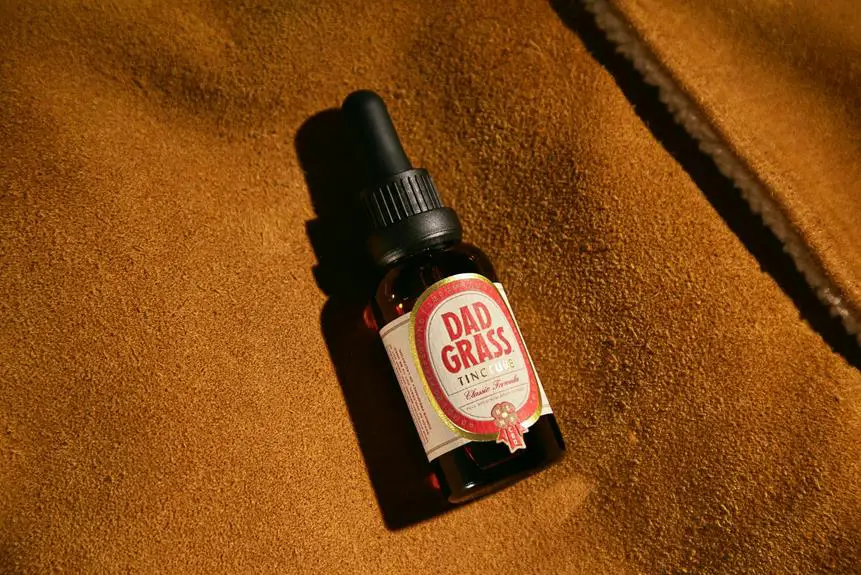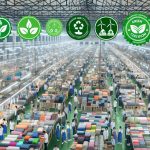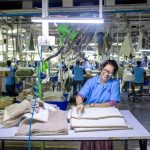When you're considering hemp fabric for your next project or wardrobe update, it's essential to pay attention to certifications that signify quality and sustainability. You might find yourself wondering about labels like GOTS or OEKO-TEX Standard 100 and what they really mean for your purchase. Understanding these certifications can empower you to make informed choices that align with your values. But what happens if you overlook these crucial details? The implications could extend beyond your fabric selection, affecting broader environmental and ethical concerns. Let's explore what each certification entails and why they matter.
Table of Contents
Key Takeaways
- Look for GOTS certification to ensure organic fibers and sustainable processing practices throughout the supply chain.
- Check for OEKO-TEX Standard 100 to confirm the fabric is free from harmful substances and safe for skin contact.
- Seek USDA Organic Certification to verify that hemp is grown without synthetic fertilizers, pesticides, or GMOs.
- Consider Fair Trade Certification for assurance of fair wages and safe working conditions for workers involved in production.
Understanding Hemp Fabric Certifications
Hemp fabric certifications help you ensure the material meets specific environmental and quality standards. When you're looking for hemp textiles, understanding these certifications is crucial. They reassure you that the fabric is produced sustainably, free from harmful chemicals, and made under fair labor conditions.
Various certifications exist, each focusing on different aspects of the production process. For instance, some certifications emphasize organic farming practices, ensuring no synthetic pesticides or fertilizers are used. Others may focus on social responsibility, verifying that workers involved in the production are treated fairly and compensated adequately.
By choosing certified hemp fabrics, you're not just investing in quality; you're also supporting ethical practices and environmental sustainability. It's essential to look for labels from recognized organizations that set rigorous standards. These labels serve as a quick reference, helping you make informed choices that align with your values.
In a market filled with options, understanding hemp fabric certifications empowers you to select products that are both eco-friendly and ethically produced, ensuring your purchases reflect your commitment to sustainability.
Global Organic Textile Standard (GOTS)
When you're considering hemp fabric, understanding the Global Organic Textile Standard (GOTS) is essential.
This certification process ensures that the fabric meets strict environmental impact criteria, so you know you're making a responsible choice.
Let's explore how this standard works and what it means for both you and the planet.
Certification Process Explained
The Global Organic Textile Standard (GOTS) certification process ensures that textiles meet strict organic and environmental criteria throughout the supply chain. To achieve GOTS certification, you'll need to verify each stage of production, from the growing of hemp to the final product.
First, your raw materials must consist of at least 70% organic fibers, which means you need to source hemp that's certified organic.
Next, your processing facilities must meet GOTS' stringent guidelines, including their social and environmental criteria. This involves conducting regular audits and maintaining transparent documentation.
You'll also have to ensure that any dyes or chemicals used during production are GOTS-approved, emphasizing the importance of sustainability in every step.
Once all requirements are met, you'll submit your application to an accredited certification body. They'll evaluate your compliance through inspections and assessments.
After successful evaluation, you'll receive GOTS certification, allowing you to market your hemp fabric as truly organic. This certification not only boosts your brand's credibility but also appeals to environmentally conscious consumers who value sustainable practices.
Make sure to stay updated on GOTS regulations to maintain your certification over time.
Environmental Impact Criteria
To ensure sustainability, GOTS sets rigorous environmental impact criteria that all certified textiles must meet throughout their production process.
This certification ensures that the hemp fabric you choose isn't only organic but also produced in an eco-friendly manner. You can trust that GOTS-certified textiles have undergone stringent evaluations.
When looking at GOTS certification, pay attention to the following environmental criteria:
- Water Management: GOTS requires efficient water use and wastewater treatment to prevent pollution.
- Chemical Restrictions: The standard limits harmful substances, ensuring that no toxic chemicals are used in processing.
OEKO-TEX Standard 100
OEKO-TEX Standard 100 ensures that hemp fabrics are free from harmful substances, making them safe for your skin. When you're shopping for hemp textiles, look for this certification to guarantee that the fabric has undergone rigorous testing for hazardous chemicals. This standard evaluates materials at all stages of production, from raw fibers to finished products, ensuring they meet strict safety criteria.
By choosing OEKO-TEX certified hemp fabrics, you're not just prioritizing your health; you're also supporting sustainable practices. The certification process helps manufacturers identify and eliminate harmful substances, contributing to a cleaner environment. This means that when you wear or use these fabrics, you can feel confident knowing they're safe for both you and the planet.
Keep an eye out for the OEKO-TEX label on your hemp products. It's your assurance that the fabric has been tested for over 100 substances, including pesticides, heavy metals, and allergens. By selecting OEKO-TEX Standard 100 certified hemp, you're making a conscious choice for quality and safety. So, next time you shop, remember to check for this certification—it's a small step that can make a big difference.
Hemp Industries Association Certification
Hemp Industries Association Certification helps ensure that the hemp products you choose meet high standards of quality and sustainability. This certification is crucial for anyone looking to support ethical and eco-friendly practices in the hemp industry. When you see this certification, you can trust that the product has been thoroughly vetted.
Here are a few key points about what the Hemp Industries Association Certification entails:
- Quality Assurance: Products must meet rigorous quality control standards, ensuring you receive a reliable and durable item.
- Sustainable Practices: Certified companies typically adhere to sustainable farming and manufacturing processes, minimizing environmental impact.
When you prioritize hemp products with this certification, you contribute to a more sustainable future while enjoying high-quality goods. Always look for this label when shopping, and you'll know you're making a responsible choice.
Whether it's clothing, textiles, or other hemp-based items, Hemp Industries Association Certification is a mark of trust and integrity you can rely on.
USDA Organic Certification
When it comes to USDA Organic Certification, understanding the certification process is crucial for growers and consumers alike.
You'll discover the benefits of organic hemp, from environmental impacts to health advantages.
Plus, knowing the key certification standards will help you make informed choices about hemp products.
Certification Process Explained
How does the USDA Organic Certification process ensure that hemp fabric meets strict organic standards? This certification is a rigorous evaluation that guarantees the hemp you're considering is grown and processed without synthetic fertilizers, pesticides, or genetically modified organisms (GMOs).
To achieve USDA Organic Certification, producers must adhere to several key steps:
- Soil Health: Farmers must maintain or improve soil quality, often using crop rotation and cover crops to enhance biodiversity.
- Record Keeping: Detailed records of farming practices, including inputs and harvesting processes, are essential for transparency and accountability.
These steps not only ensure that the hemp is organically cultivated but also that it supports sustainable farming practices.
The certification process can take time, but it ultimately guarantees that the hemp fabric you choose is of the highest quality and adheres to strict organic standards. By opting for USDA certified hemp, you're making an informed decision that aligns with eco-friendly and health-conscious values.
Benefits of Organic Hemp
Opting for USDA Organic Certified hemp fabric offers numerous benefits, including reduced environmental impact and enhanced health safety for consumers. When you choose organic hemp, you support farming practices that prioritize sustainability. This means no synthetic pesticides or fertilizers, which can harm ecosystems and waterways.
Additionally, organic hemp fabric is often more breathable and durable, making it a great choice for clothing, accessories, and home textiles. You'll also find that it's hypoallergenic, which is ideal if you have sensitive skin.
Here's a quick look at some key benefits of choosing USDA Organic Certified hemp:
| Benefit | Description | Impact |
|---|---|---|
| Environmental Sustainability | Grown without harmful chemicals | Protects ecosystems |
| Health Safety | Free from toxic substances | Safer for skin and overall health |
| Durability | Stronger fibers lead to longer-lasting goods | Reduces waste over time |
Key Certification Standards
Understanding the key certification standards of USDA Organic Certification is essential for ensuring that the hemp fabric you choose meets rigorous environmental and health criteria. This certification guarantees that the hemp is grown without synthetic pesticides or fertilizers, promoting a sustainable farming practice. When you see the USDA Organic seal, you can trust that the material adheres to strict regulations.
Here's what to look for in USDA Organic Certified hemp fabric:
- No Synthetic Chemicals: The hemp must be cultivated without the use of toxic chemicals that can harm the environment and your health.
- Non-GMO: The seeds used for growing the hemp must be non-genetically modified organisms, supporting biodiversity and ecosystem health.
Fair Trade Certification
Fair Trade Certification ensures that the hemp fabric you choose supports ethical labor practices and fair wages for workers. When you opt for Fair Trade certified hemp, you're making a conscious decision to promote social justice. This certification guarantees that the producers receive fair compensation, enabling them to support their families and communities.
To help you understand what Fair Trade Certification encompasses, here's a quick overview:
| Aspect | Details |
|---|---|
| Fair Wages | Workers are paid a living wage. |
| Safe Working Conditions | Ensures a safe, healthy workplace. |
| Community Development | Invests in local community projects. |
| Environmental Impact | Promotes sustainable farming practices. |
Sustainable Apparel Coalition (Higg Index)
When you choose hemp fabric, considering the Sustainable Apparel Coalition's Higg Index can provide insight into the environmental and social impacts of your purchase.
The Higg Index is a standardized tool that helps you evaluate the sustainability of apparel and footwear. By checking the Higg Index score of the hemp fabric you're interested in, you can make informed decisions that align with your values.
Here are a few key aspects to look for:
- Environmental Impact: The score reflects water usage, carbon emissions, and waste management practices.
- Social Responsibility: It assesses labor practices and worker rights, ensuring ethical production.
Using the Higg Index as a guide allows you to support brands that prioritize sustainability. It not only helps you understand the broader implications of your fabric choice but also empowers you to make a positive impact on the environment and society.
Frequently Asked Questions
How Can I Verify a Certification's Authenticity?
To verify a certification's authenticity, you should check the issuing organization's reputation, look for official contact information, and cross-reference the certification number online. Don't hesitate to reach out directly to the certifying body for confirmation.
Are There Any Certifications Specific to Hemp Production?
Yes, there are specific certifications for hemp production, like the Organic Certified label and the Global Organic Textile Standard (GOTS). These ensure sustainable practices and quality, so you can feel confident in your fabric choices.
How Do Certifications Affect the Price of Hemp Fabric?
Certifications can raise the price of hemp fabric because they ensure quality and sustainability. When you choose certified products, you're often paying for the assurance that the fabric meets specific environmental and ethical standards.
What Are the Environmental Benefits of Certified Hemp Fabric?
Certified hemp fabric significantly reduces environmental impact. It uses less water, requires no pesticides, and improves soil health. By choosing certified options, you support sustainable practices that benefit the planet and promote eco-friendly production methods.
Can I Find Hemp Fabric Without Any Certifications?
Yes, you can find hemp fabric without certifications. However, it's important to be cautious, as unverified products may not meet quality or sustainability standards. Always research the source to ensure you're getting what you expect.
- Cordura Vs Kevlar Fabric: Which Is Better for Tactical Tents? - June 21, 2025
- Class IIIA Kevlar Fabric: Standards for Body Armor - June 21, 2025
- China Carbon Kevlar Fabric Wholesale: Cost-Effective Sourcing - June 21, 2025







